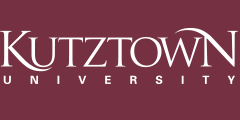Journal of Counselor Preparation and Supervision
Document Type
Article
Keywords
Career counseling attitudes, career counseling pedagogy, flipped course design, active learning strategies
Subject Area
Counselor Education
Abstract
Because work is important to mental health, faculty who teach career development courses need strategies to engage master’s counseling students who may have low motivation for the topic. Findings from this exploratory study suggest that enhanced focus on experiential learning strategies, achieved by using a flipped classroom, may improve students’ attitudes toward career development counseling and generate confidence in performing career counseling tasks (N=58). The experiential class activities and assignments, and technology utilized for flipping the course are described. Student feedback regarding changes in their attitudes and values toward career development, and confidence in performing career counseling, is reported along with feedback regarding instructional methods and preferred class activities and assignments. Implications for counselor education are discussed.
DOI
http://dx.doi.org/10.7729/72.1126
Recommended Citation
Fulton, C., & Gonzalez, L. (2015). Making Career Counseling Relevant: Enhancing Experiential Learning Using a “Flipped” Course Design. Journal of Counselor Preparation and Supervision, 7(2). http://dx.doi.org/10.7729/72.1126


